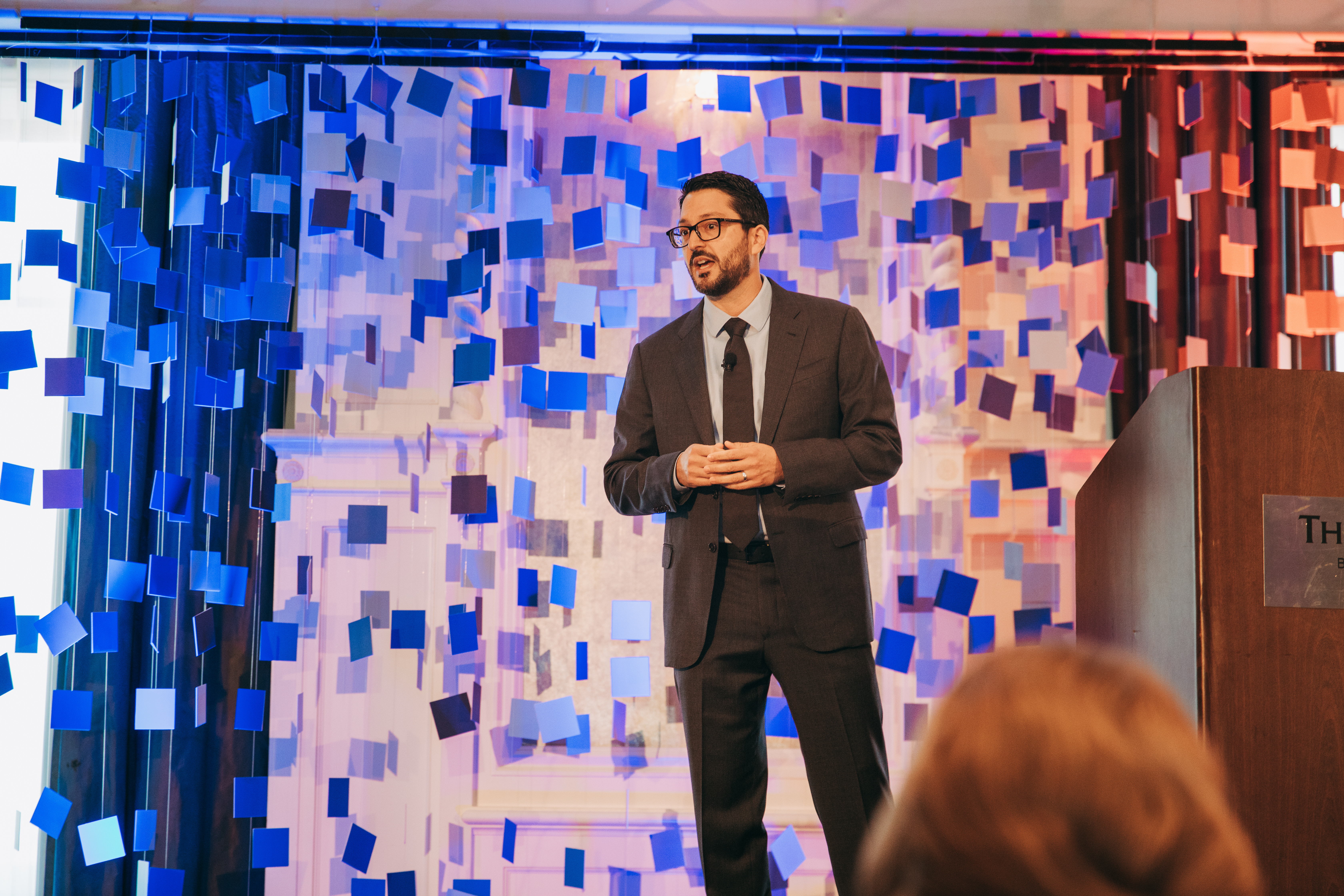Race in the Workplace: The Frontline Experience
Institutional Investor’s Diversity, Equity and Inclusion Roundtable in Chicago in October 2022 recognized 12 industry leaders for their commitment to and leadership in diversity initiatives. Over the next six months, Allocator Intel will share the diversity, equity, and inclusion initiatives of allocators throughout the industry.
As Chief Investment Officer of the W.K. Kellogg Foundation (WKKF) since 2021, Carlos Rangel is among the honorees of the DEI Roundtable. His notable DEI work at WKKF includes co-creating the Expanding Equity program to advance racial equity, diversity and inclusion in the corporate sector, which has engaged more than 550 leaders from nearly 100 companies from 10 industries.
Recently, the $8.5 billion foundation collaborated with McKinsey’s Institute for Black Economic Mobility on an ambitious study titled, “Race in the Workplace: The Frontline Experience.” Here are the some of the findings from this research

Key Findings
Limited opportunity
70% of the US workforce (112 million workers) are employed in frontline positions, defined as those who work directly with customers or are directly involved in making or selling a product or providing a service such as cashiers, salespeople, and housekeeping staff. These frontline staff members include:
- 17 million frontline professionals, including schoolteachers and registered nurses, who earn an average annual salary of $54,000
- 95 million frontline hourly and salaried roles – including retail salespeople, cooks, and store managers – who earn an average annual income of $33,000
Workers of color are often overrepresented in frontline hourly and salaried roles:
Black workers (80% of whom are frontline professionals or workers)
- earn 25% less than their White peers
- are concentrated in healthcare support, protective services, and community and social services
Asian workers (62% of whom are frontline professionals or workers)
- have high levels of education (21% have a bachelor’s degree compared to 16% of White workers, 10% of Black workers, and 8% of Latino workers), but experience less promotion than other groups: They are 9% of frontline
- hourly roles, but only represent 5% of salaried positions.
- are concentrated in accommodation and food service, manufacturing, and healthcare
Latino workers (80% of whom are frontline professionals or workers)
- earn 22% less than White frontline workers
- are concentrated in agriculture, construction, and forestry, fishing, and hunting
Solutions
Executive management should recognize that 70% of frontline workers want to be promoted to corporate positions within their companies, but only 4% advance to the corporate level. Companies should, says the McKinsey report:
- formalize paths for advancement from the frontline to higher-paying roles
- overhaul the frontline talent management system
- establish a talent market program
Companies can promote upward mobility by focusing on experience and transparency of opportunities and skills needed. The McKinsey report argues that companies should:
- define the skills frontline workers need for higher-level roles
- reward experience rather than relying on credentials
- identify “gateway” supervisory positions within the organization and remove artificial barriers to promotion
Companies can create a better employee experience with programs that:
- give a voice to frontline workers
- “raise the floor” on the frontline experience
- invest in frontline managers
For the full report, visit McKinsey here.
To read our complete conversation with Carlos Rangel, click here.
For the full list of DEI Award winners, visit Allocator Intel here.
To discuss the content of this article or gain access to like content, log in or request membership here.
